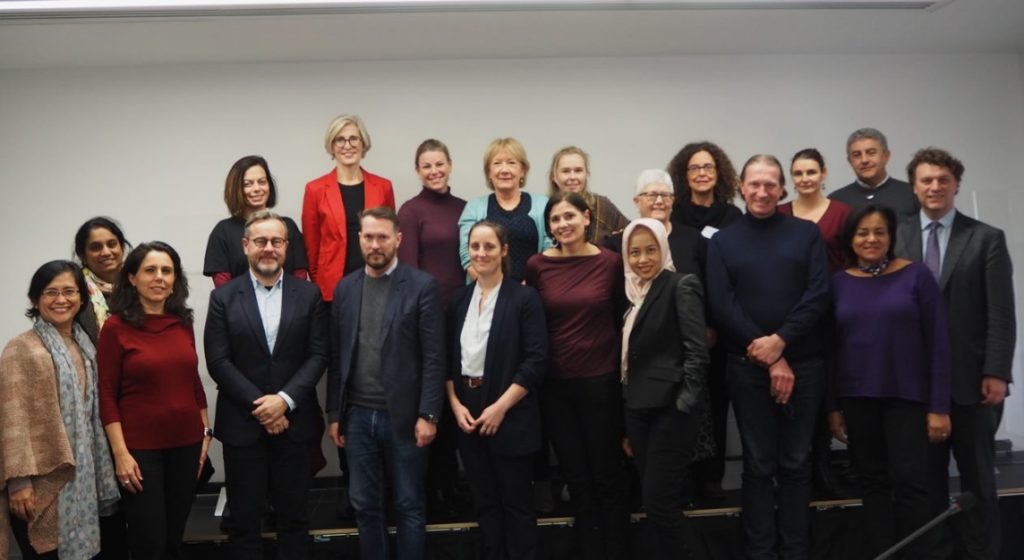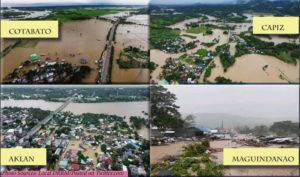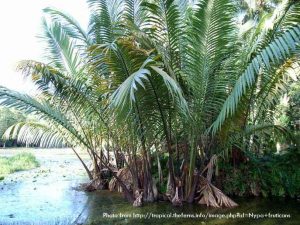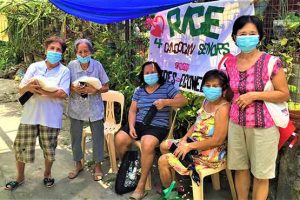ECOWEB Inc. Director Regina S. Antequisa attends the Humanitarian Policy Group (HPG) meeting in London on December 1-2, 2022, and the forthcoming Humanitarian Accountability Training in Bangkok on December 4-14 which includes the Regional Humanitarian Partnership Week 2022 conference.

HPG is one of the “leading teams working on humanitarian issues and is dedicated to improving humanitarian policy and practice through a combination of high-quality analysis, dialogue, and debate.”
The discourses will revolve around “Beyond Neutrality: alternative forms of humanitarian action” intending to lead thinking and agendas “to deliver transformational change and bring about a global sense of resilient, just and equitable prosperity.”
It will be a gathering of a range of experts “to explore consistent challenges and new developments associated with the principles and ethics of humanitarian action in key conflicts of 2022.”
The meeting primarily considered an argument that “it is immoral to remain neutral in the face of war crimes” as well as the growing acceptance for alternative forms of humanitarian action motivated by the principles of solidarity, resistance, and social justice.” It will also include discussion on the challenges besetting the humanitarian works in Ukraine, an embattled country resisting to assert its independence as a nation.
On December 1, HPG will have an intensive discussion on Strengthening Protection and Advocacy in Humanitarian Action; Climate Change, Conflict and Displacement; Integrating Humanitarian Assistance to the Displaced with Social Protection; Introduction to the Integrated Programme 2022-2024: People Power and Agency; and, Remaking Aid: Ethics, Politics, and Narratives.
Late in the afternoon, participants had a breakout group session to tackle thematic concerns on Beyond Survival: Well-being in Protracted Crisis; Social Cohesion and Forced Displacement; Community Agency, Protection and Peacebuilding; and, Partnering for a Localized Humanitarian Research Agenda.
Day 1 concluded with a discussion on Beyond Neutrality: Alternative Forms of Humanitarian Action.
On December 2, HPG participants delved into the Highlights from the Humanitarian Practice Network (HPN); Spotlight on Humanitarian Exchange on Protection from Sexual Exploitation, Abuse, and Harassment (PSEAH); Better Humanitarian Responses to Sexual and Reproductive Health and Rights; and, Future Directions: HPG Strategy and the Future of HPN.
Antequisa also met with Alex Ross of Talk to Loop, an independent global digital platform that enables people to share their opinions in an open, transparent and safe manner, and Federico Motka, head of the Emergencies and Humanitarian Portfolio of Vitol Foundation, a day before the HPG meeting.
Few days before heading to London, in November 29, Antequisa also met and dialogued with a number of development and humanitarian workers from Balik Lokal at Code NGO to discuss the formation of the National Reference Group in the Philippines for the Grand Bargain caucus which focused on policy advocacy for the localization of humanitarian supports.
The Grand Bargain will also meet on December 1 in London — either donor or intermediary — to “discuss solutions to increase direct funding to local and national humanitarian actors.”
The caucuses will also include “focus on elevated and political issues which have been stalled and requiring specific decision-making at the senior level but which must have collective relevance, transformative potential, directly linked to enabling priorities, and the four strategic outcome pillars within the scope of Grand Bargain work-streams, commitments and cross-cutting issues like risks and gender.”
“Results of these discussions are brought back to constituencies for adoption, action, and emulation,” the Grand Bargain officials stipulated in their report.
Reports further cited that caucuses are flexible, adaptive, informal, and peer-to-peer in their relational discussion. Hence, focused on shared interests and common goals for a specific change with far-reaching significance.
Global humanitarian leaders have been developing a transition plan as a model that will take into account the varied contexts and realities in every country. This new model is “consistent to the Grand Bargain commitments, in the principles of localization, and in enabling more inclusive coordination with local and national actors, ensuring that the cash intervention is made closer and with greater accountability to the crisis-affected people.”
Experiences gathered from discourses among Grand Bargain stakeholders cited “quality funding which increased multi-year and flexible funding to lower administrative costs, catalyze more responsive programming and facilitate a swifter response to urgent needs and situations of protracted and neglected conflicts.”
They also highlighted the strategic priorities on the centrality of protection, accountability to affected people, preserving humanitarian space, gender, climate by enforcing the enabling priorities for effective localization, an effective system to respond to the needs of internally displaced peoples, in humanitarian-development collaboration, and linkaging to peace, as well as in humanitarian financing.
Experts further posit that the cash-based humanitarian model is beneficial in a sense because of “its scalability and reachability; speed and efficiency; link with social protection system; maximized resources; reduced duplication; harmonized cash approaches; and increased responsiveness.”
ECOWEB Inc. modeled this practice in responding to Marawi siege and Typhoon Odette survivors for efficiency in the delivery of humanitarian support and enable IDPs to exercise decision rights to address immediate needs with flexibility to their diverse interests – like medicines for ailing members of the family, for the education of their children, or to start a micro-enterprise for recovery.
Last year, ECOWEB led in the consultative process for the roadmap for localization when a signatory of the Grand Bargain committed to support this meaningful event in collaboration with UN OCHA, OXFAM Philippines and with proactive support from the UN Resident Coordinator. It was undertaken in collaboration with Alliance for Empowering Partnerships (A4EP), Center for Disaster Preparedness (CDP), Philippine Preparedness Partnership (PhilPrep) and Asian Preparedness Partnership (APP).
Antequisa will also attend the Humanitarian Accountability Training in Bangkok which will “tackle the application of Quality, Accountability to Affected Population and Safeguarding to make a difference for communities and people.” This intends to “accelerate the implementation of best practices locally; transform innovation into solutions; add value and be more cost-effective.”
Participants will also attend the CHS Revision Consultation and a Regional Humanitarian Conference hosted by the Community World Service Asia (CWSA) with the Asian Disaster Risk Reduction Network (ADRRN), International Council of Voluntary Agencies (ICVA) & the United Nations Office for the Coordination of Humanitarian Affair (UNOCHA).
They will also grace the events of the Regional Humanitarian Partnership Week 2022.
CSWA is a member of Sphere and the Core Humanitarian Standard (CHS) Alliance and Regional Focal Point for the Asian Disaster Risk Reduction Network’s (ADRRN) Quality & Accountability Hub.
Read related stories: https://ecowebph.org/walk-the-talk-moving…/news-stories/








